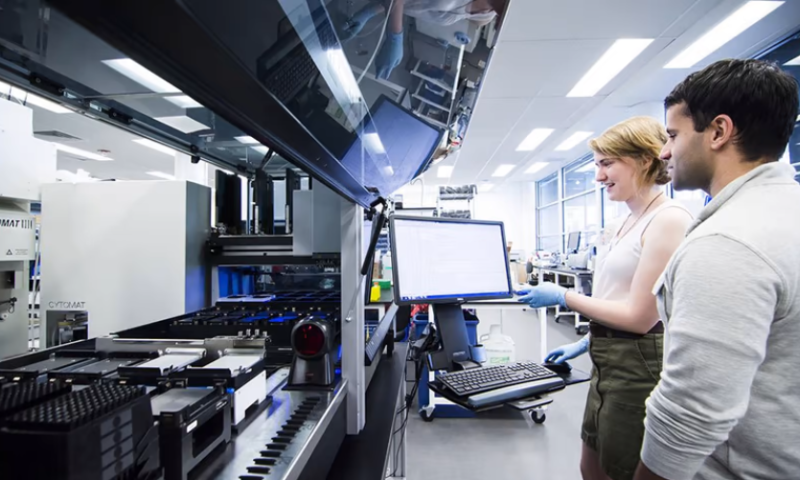Reprogramming cells to create specific molecules is no walk in the park. Not only are there seemingly endless pathways to manufacture any given molecule—some much more effective than others, and many of which still have yet to be uncovered—but the process itself can also be a difficult and time-consuming one, requiring repeated tests to ensure the programming is actually working.
Hoping to counteract some of those difficulties in its own cell engineering platform, Ginkgo Bioworks said this week it has acquired “certain assets” from Bitome, which is developing technology to track how well individual cell lines are performing throughout the programming process.
Financial terms of the acquisition weren’t disclosed. Ginkgo was valued at $15 billion last September as it went public in a SPAC merger. Privately held Bitome, meanwhile, hasn’t released any revenue reports or venture funding updates since its 2016 founding but was awarded $225,000 in grant funding from the National Science Foundation in 2020.
Since announcing the acquisition Monday, Ginkgo’s stock has been on the rise, climbing toward $3.70 per share as of Wednesday morning. That’s quite the difference from just a month ago, when shares hit an all-time low of $2.20 in early May.
Bitome’s technology uses machine learning to continuously monitor cell culture media, giving researchers real-time insights into the progress of each cell strain’s growth in a bioreactor.
Adding that tech to Ginkgo’s platform—which creates molecules for clients in the pharmaceutical, agricultural, food and other industries—could potentially speed up the entire cell processing timeline, which typically takes a “guess-and-check” approach. Instead, scientists will be able to identify immediately which cells and culture media are most promising to complete a given molecule manufacturing task in real time, without requiring extensive testing.
“Ginkgo is constantly looking for opportunities to strengthen its cell engineering platform, and a central component of cell engineering is testing and optimizing strains at scale,” said Barry Canton, Ginkgo’s co-founder and chief technology officer. “Having evaluated Bitome’s technology over the past few years, we believe their technology will allow us to accelerate the design and optimization of strains across a range of customers and industries.”
Ginkgo has been on a bit of a shopping spree as of late. Before the Bitome buy, in March, the Boston-based company scooped up Switzerland’s FGen AG, the developer of an ultrahigh-throughput cell screening platform, with a similar goal of making the cell engineering process much more efficient from the get-go.
Prior to that, Ginkgo kicked off the year with a deal to acquire Project Beacon, an organization focused on increasing the accessibility and affordability of COVID-19 testing and monitoring tools across Massachusetts.

